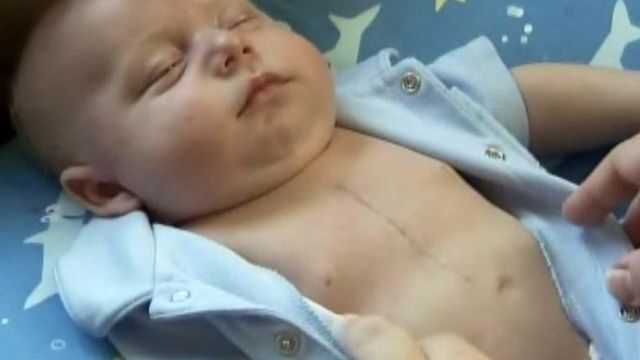Hospitals could begin screening for heart defects in newborns
A federal advisory panel led by a Duke University doctor is recommending that more hospitals use a simple, painless test to screen for congenital heart disease in newborns.
Posted — UpdatedA pulse oximetry is non-invasive and inexpensive and can detect a heart defect even before symptoms are present. To administer the screening, a doctor tapes a sensor to a newborn's foot that measures the amount of oxygen in the blood.
"It's particularly important to identify these babies with critical congenital heart defects because, if we don't, they can go home from the nursery and very rapidly die," said Dr. Alex Kemper, a pediatrician and professor at Duke University, who authored the recommendation.
One in 120 infants are born each year with congenital heart disease, and 25 percent of those die from it. North Carolina health officials say they are aware of the federal recommendation and are interested in talking with physicians about the test.
The state's hospitals are already required to screen for more than 30 conditions, including hearing disorders, cystic fibrosis and sickle cell disease.
Jodi Koravos, whose 2-month-old son Alex was born with a heart defect, supports the testing. She remembers finding out that something was seriously wrong with her newborn baby.
"One of the nurses was getting ready to bring him back to our room, and she noticed his fingernails were turning blue," she said. "In that one instant, everything changed."
Alex was rushed off for emergency heart surgery, and although he still has two surgeries ahead of him, Koravos said he's recovering well.
"If it weren't for the giant scar in the middle of his chest, you wouldn't know there was a problem with him," she said.
• Credits
Copyright 2024 by Capitol Broadcasting Company. All rights reserved. This material may not be published, broadcast, rewritten or redistributed.





